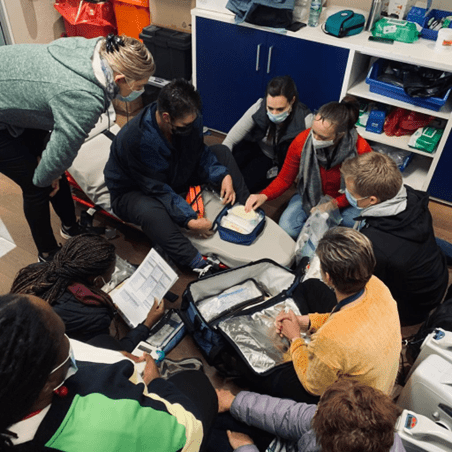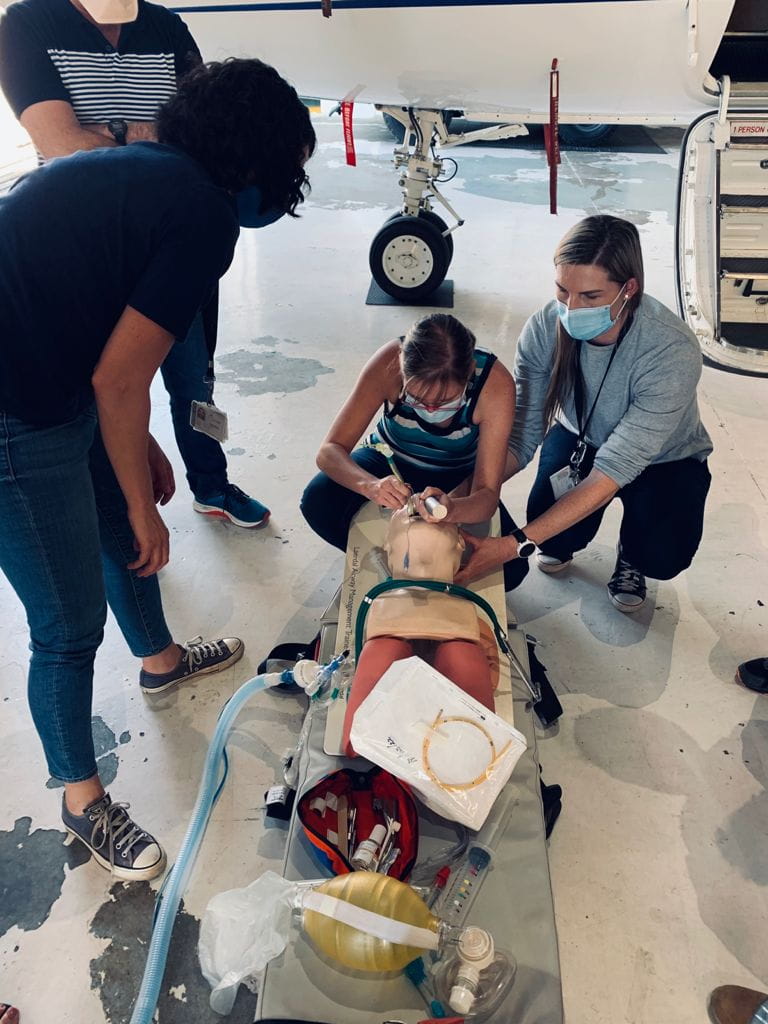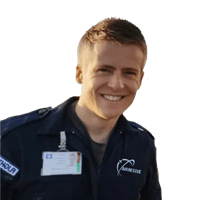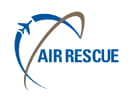14.06.2023 | Johannesburg, South Africa
It is well established that training and continuous medical education are vitally important to any medical professional. Due to the expectations placed on air ambulance medical crew to perform at the highest level during every patient interaction, the importance of training throughout one’s career is emphasised even more. One of the most important reasons for this is that as a practitioner doing air ambulance work, one has the responsibility towards one's sick patient to keep him/her safe in an isolated and often extremely challenging environment. At Air Rescue Group, we strongly believe that the best way to ensure that the medical crew is always prepared for these challenging scenarios is through continuous training and education.
To start with, we have an expectation that all medical crew must meet our minimum requirements for formalised training, clinical experience, and continuous medical education prior to joining the our team. For both nurses and doctors, this includes well-defined post graduate qualifications, a minimum amount of clinical work experience post-qualification and having completed a variety of certain training courses. For example, nurses are required to have specialised in either Critical Care/ Intensive Care Nursing or Emergency Nursing, have at least 2 years clinical work experience after obtaining this qualification and to have completed several short courses that need to be renewed on a regular basis.
Once someone is successful in their application to join the team, an in-depth induction process ensues. This includes:
- A structured orientation on our equipment, aircraft, and documentation
- Introduction to company policies and procedures
- Observer flights where the new member joins the existing crew on actual missions
- A probation period where performance is assessed and the requirement for specific additional training is determined

It goes without saying that air ambulance crew should have a welcoming and enthusiastic attitude towards training. This forms the basis of a positive organisational culture that champions excellence in all aspects of medical care. The common goal we have for our medical crews is for them to grow and improve on a continual basis. Training obviously plays a key role in this agenda and thus we have various training initiatives that form part of our continuing medical education program:
- Monthly training days. These are mostly skills-based sessions where crew members get to do training in a simulated environment. The focus here is on skills that are not frequently performed in practice, but still vitally important to ensure good outcomes for patients. These training sessions also include simulation training of specific cases and scenarios.
- Weekly academic meetings where relevant topics are discussed.
- Monthly morbidity and mortality meetings where outcomes of cases done are discussed and case presentations are done.
- We value debriefs after a flight as a powerful tool to learn and hence we regularly debrief cases that were challenging or that went exceptionally well.
- A critical care retrieval program, which is currently being revamped, but essentially covers the nuances about critical care retrieval in our setting.
- The company makes provision (mostly outsourced to third party institutions) for all crew members to complete the mandatory short courses whenever they are up for renewal.
- A provision for permanent crew members to attend conferences relevant to retrieval medicine to stay updated about the latest developments in the field.
- An exciting new initiative includes conducting basic life support and resuscitation support training for the pilots working on the air ambulance.
In our field of work, the importance of simulation training cannot be over emphasised. Medical flight crews need to train together in a low-consequence environment where any mistakes made does not have detrimental consequences and affords them with an ideal opportunity to learn. High fidelity simulation training has been well established as an ideal training method and something we have invested a lot of time and effort in.
Through conducting our own in-house training, we have found that an effective way to set-up and develop a training program/interaction is to start by defining the outcomes. One must consider what it is that you want the people attending the training to achieve. From there you can design your training or training program accordingly. The quality of training conducted is obviously also a key component to success, not only of a specific training interaction, but for the entire training program driven by the organization. For the crew to buy into the idea of investing time and effort into training, the value they get from training must be well appreciated. Training days/courses/programs must be well organised, interesting, and relevant. The cost of training is obviously a very important consideration. It is critical in the highly competitive Air Ambulance market that a robust training budget is established as a priority item. The value a well-constructed training program offers is likely worth every little bit of investment.

As medical crew working on an air ambulance, we are part of a discipline of medicine that has seen many exciting developments in recent times. There has been a move towards defining Retrieval Medicine as a distinct subspecialty of Critical Care and Emergency Medicine. This concept of Retrieval Medicine basically entails sending a skilled medical crew with specialised equipment to critically ill patients to assist local health care professionals with the resuscitation and stabilization of a patient in order to facilitate a safe transfer. Although not a new concept, it does introduce a lot of new ideas and principles. This field of Retrieval Medicine has expanded exponentially over the years and as an organisation, it is our responsibility to ensure our training and education to keep up with this.
We firmly believe that by prioritising training we are not only setting ourselves apart from many of our competitors, but also ensuring world class patient care which is the goal.

Dr. Ulrich Carshagen
Lead Flight Physician at Air Rescue Group


